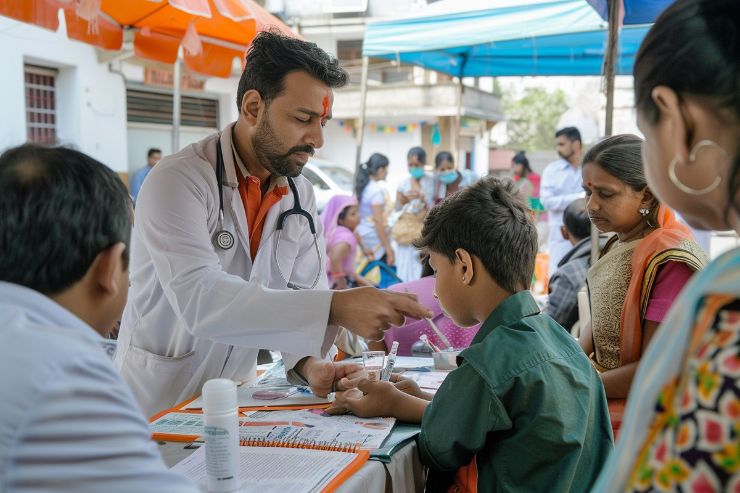Medical Camps

What are Medical Camps?
Medical camps are organized events that provide free or low-cost healthcare services to communities, particularly in underserved or remote areas. These camps bring together healthcare professionals, including doctors, nurses, and volunteers, to deliver essential medical care, screenings, and health education to people who may not have regular access to healthcare services.
Purpose of Medical Camps
The primary goal of medical camps is to improve community health by offering a wide range of services, such as:
- Preventive Care: Providing vaccinations, health screenings, and check-ups to detect and prevent potential health issues before they become serious.
- Treatment and Consultation: Offering diagnosis and treatment for common illnesses, minor injuries, and chronic conditions like diabetes and hypertension.
- Health Education: Educating attendees on important health topics, such as hygiene, nutrition, disease prevention, and managing chronic conditions.
- Access to Specialists: Bringing specialists to areas where such expertise is not usually available, allowing people to receive care without having to travel long distances.
Types of Services Offered
Medical camps typically offer a variety of healthcare services, including:
- General Health Check-ups: Basic examinations to assess overall health and identify any immediate concerns.
- Specialist Consultations: Access to specialists in fields such as cardiology, ophthalmology, dentistry, and gynecology.
- Diagnostic Tests: On-site tests like blood pressure checks, blood sugar tests, eye exams, and dental check-ups.
- Medication Distribution: Providing free or discounted medications and health supplies to those in need.
- Health Awareness Sessions: Workshops and talks on topics such as nutrition, sanitation, maternal and child health, and lifestyle diseases.
Benefits of Medical Camps
Medical camps offer numerous benefits to individuals and communities, including:
- Improved Access to Care: Providing healthcare services in areas where they may be scarce or inaccessible.
- Early Detection of Diseases: Facilitating early diagnosis of conditions that might otherwise go unnoticed, leading to timely treatment and better outcomes.
- Community Engagement: Encouraging community members to take an active role in their health and well-being through education and participation in health activities.
- Support for Public Health Initiatives: Medical camps often align with broader public health goals, such as immunization drives and awareness campaigns for diseases like malaria, tuberculosis, and HIV/AIDS.
Challenges and Considerations
While medical camps are valuable, they also face challenges such as limited resources, the need for adequate follow-up care, and the logistical complexities of organizing large-scale events. Ensuring sustainability and continuity of care after the camp is crucial for maintaining long-term health benefits in the community.
